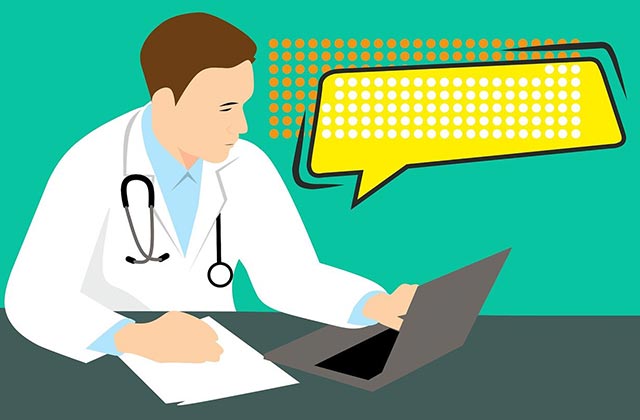Do you have inflamed or itchy skin? Or do you have the tendency to get allergic reactions like hay fever or asthma? Perhaps you have this incurable but manageable skin condition called eczema that affects up to 20 percent of infants and three percent of children and adults in the United States.
Eczema is a cluster of conditions making your skin irritated or inflamed. It includes the following skin conditions: atopic dermatitis, contact dermatitis, dyshidrotic eczema, nummular eczema, seborrheic dermatitis, and stasis dermatitis.
Atopic dermatitis is the most common type. This is that type which most people refer to when they talk about ‘eczema’. “Atopic” signifies the tendency where a person may get allergic conditions like hay fever or asthma. Contact dermatitis is that type of eczema which most of us get at some phase in our lives. Usually, this is acquired when your skin gets in contact with something that brings forth rashes.
The third type is dyshidrotic eczema where one’s skin is unable to protect itself in a way that it should be doing. Fourth is nummular eczema, where a person usually acquires round sores mostly after having skin injuries like insect bites or burns. The fifth is seborrheic dermatitis which occurs in a body part with lots of oil glands. It is called dandruff when this occurs on your scalp. And lastly, stasis dermatitis which is usually a result when a person has poor blood flow mostly in the lower part of the legs.
As stated earlier, eczema has no cure. But its symptoms can be managed by avoiding irritants or through treatment. Also, eczema is not an infectious condition, so there is no chance for you to transmit it to other people.
The way eczema looks vary from one person to another and the inflammations do not always occur in the same part of the body. Regardless of which skin part it affects, eczema is most of the time itchy. The itchiness could even at times begin before the actual rashes appear. The skin may also be red, leathery, cracked, and dry.
It is the itching due to eczema that may bring about infection. Thus, preventing and easing itchiness is what eczema treatment aims for. There are home remedies that can soothe these symptoms. Here are six of them:
1. Use skin moisturizers.
Usually, doctors will suggest using creams and lotions to keep your skin moist since eczema makes it dry and itchy. The effects of creams and ointments on your skin include easing the inflammation and putting back the water into your skin to facilitate its healing. You should apply these several times a day. You should also apply it right after taking a shower or bath. Other products that you can use are mineral oil and petroleum jelly. They work well on your affected area since they form a firm barrier on your skin’s surface.
After taking a bath, or when your skin is damp, you can also apply skin products that contain urea, lactic acid, and glycerin. These are effective in pulling water into your skin and holding in its moisture.
2. Use antihistamines and hydrocortisone creams.
There are over-the-counter products that you can use to help you soothe the symptoms of eczema. These include antihistamines and hydrocortisone creams.
Most probably, over-the-counter medicines for allergy may not bring forth a soothing effect on your itchy skin due to eczema. But you can take antihistamines before bedtime since it has a drowsiness effect that can help you sleep.
On the other hand, the steroid hydrocortisone can help with your skin redness, itchiness, and swelling. There are available mild lotions and creams at the store. When these low-strength products do not help, you may ask your doctor for a prescription of a stronger product.
As long as you are not breastfeeding or pregnant, putting hydrocortisone on most of your body parts for as much as four times a day for up to one week is safe. Just make sure to keep it away from your genitals, rectum, and eyes.
3. Try wet wraps.
Wet wraps are wet bandages wrapped over moisturizer or topical steroid creams to affected areas. When you have hot, red, and weeping eczema, you can drench in cool water some bandages, gauze, or pieces of soft clothing. Then you can put them on your affected skin area. Its effects are two ways: its coolness relieves the itching, and its moisture The coolness will relieve itching, and its moisture will increase the effectiveness of lotions and creams. You can then cover the area with a dry cloth or layer such as pyjamas before leaving it in place overnight or for several hours.
4. Use colloidal oatmeal.
Colloidal oatmeal can be formed if you grind oats into a fine powder. It can soften or soothes the skin since it has fats, protein, vitamins and minerals, and other nutrients beneficial to the skin. You may add colloidal oatmeal to a lukewarm bath.
5. Use calamine lotion.
Calamine lotion is a medication used to treat mild itchiness. It may also help dry out skin irritation. It contains zinc oxide and ferric oxide. You can place it inside the refrigerator and when applied to the affected skin, it can help in quickly relieving the itchiness.
6. Try relaxation techniques.
Studies have shown that there is a strong relationship between your skin and your level of stress. Also, you are more likely to scratch, even more, when your emotions are running high. Thus, you must try different relaxation techniques to reduce your stress.
There are instances when you need to see your doctor right away. These are when signs of infections are observable like having blisters, fever, redness, or warmth; or when your eczema changes or gets worse at a sudden, or home remedies do not work. In these cases, it is highly advisable to visit an online walk-in clinic in Brantford for immediate medical intervention.
Self-care and home remedies are all you need to manage your eczema. But for severe cases, you do not need to lose hope since medical professionals are there to help you out!


